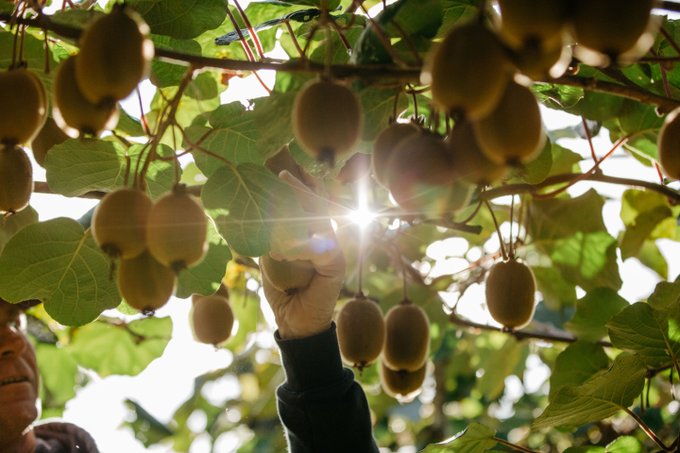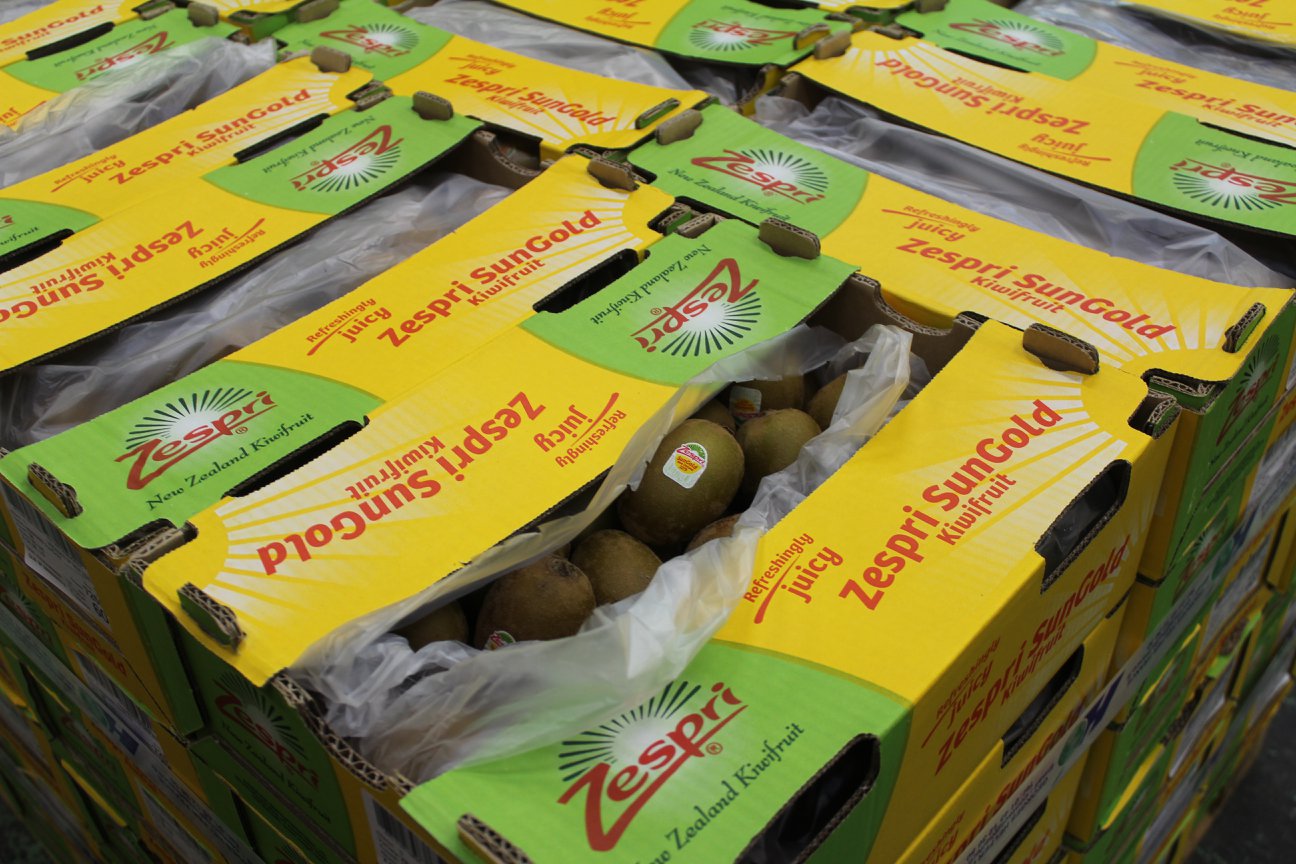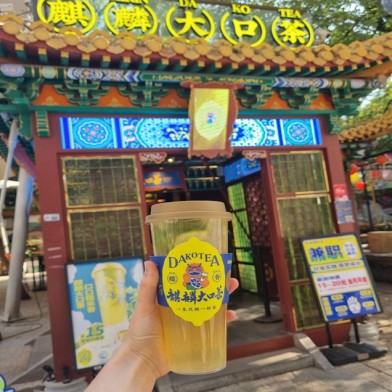As Zespri gears up for record production and a major change of leadership in 2024, it remains bullish about the prospects of its major market, China. Following the visit of former Prime Minister John Key to China in November, Zespri is also optimistic that it can find a way forward with the growing issue of unauthorised production of its Gold3 (SunGold) kiwifruit variety in China.
Zespri has announced it expects to ship around 700,000 tonnes of kiwifruit to markets around the world this year. That is not only a massive increase on the 480,000 tonnes shipped from New Zealand last season (when weather badly impacted the harvest) but is also up on the previous high of 630,000 tonnes shipped in 2021.
At the Zespri Board meeting this month, Nathan Flowerday will take over as chairman in place of Bruce Cameron.
CEO Dan Mathieson also recently announced his intention to move on after almost seven years in the role, though he will stay to oversee the 2024 harvest and start of the sales season until a new CEO is appointed.
The company's growth in its top market will excite the new leaders as they take over.
China will get a big share of this year's extra product, with the company planning to allocate 40 percent more volume of fruit to China this year.
Ivan Kinsella, Vice President of China Corporate Affairs, based in Shanghai, says it will be a “huge season.”
“With the much larger crop, the average fruit size will be a little smaller, which will mean a 50% increase in the actual number of pieces of Zespri kiwifruit sold to China."
In total, 27% of production this year will go to the greater China region, including Hong Kong and Taiwan.
“This will mean that for the first time, the 1.4 billion population of the greater China region will be consuming an average of one Zespri kiwifruit per person," Kinsella said.
Zespri is aware of the risk of dependency on any single market and has an informal cap on how much it is prepared to send. This year`s numbers will be within that cap.
While newspapers in the west are filled with stories of the slowing Chinese economy, Kinsella says there is plenty of room for growth, and consumers show no sign of losing their enthusiasm for the fruit, “we’ve continued to see strong demand for Zespri kiwifruit.”
“The season for New Zealand kiwifruit is also highly complementary to China’s northern hemisphere kiwifruit industry, which is by far the world’s largest grower of kiwifruit. Zespri supplies less than 5 percent of the overall volume consumed in China."
GDP growth, unemployment, household disposable income, and willingness to spend money have picked up from the COVID-19 pandemic but are still lower than expected heading into 2024.
He added, “competition has been another challenge with other fruits, including blueberries, durian, and cherries, growing in popularity in China over the past three years, which means more competition in the fruit bowl compared to previous years.”

Zespri is expected to ship around 700,000 tonnes of kiwifruit globally. Image: Zespri's X account.
The biggest headache for Zespri is not demand but the potential impact of the spread of illegal growing of New Zealand-licenced kiwifruit, along with false marketing.
Zespri is following a two-fold strategy: defending itself in Chinese courts while also seeking collaboration with local growers.
China has long suffered from weak IP protection and false labelling by dodgy operators, but the situation is improving.
Zespri continues to encounter local (or imported) products passed off as Zespri fruit, powered by China’s huge e-commerce sector, but the number of cases is declining. Zespri tests products for origin where required to prevent the mixing of NZ and local fruit.
It has conducted more than 200 successful prosecutions of fake labelling and packaging in China in the last 7 years.
The bigger issue remains limiting the spread of local unauthorised planting of its licenced Gold3 (Sungold) variety.
The story dates back to 2005.
As reported in 2022 by Chinese media group Caixin, that year, a young Chinese man named Gao Haoyu moved to New Zealand with his wife. He became a kiwifruit grower and started supplying Zespri.
Realising that New Zealand was far ahead of the Chinese industry, he began to travel back and forth to China to share his knowledge of planting techniques and management models with local growers and to smuggle protected varieties of kiwifruit into China.
Zespri took Gao to court. In February 2020, the Auckland High Court ordered Gao to stop the infringement and pay Zespri compensation of NZ$15 million, subsequently reduced to NZ$12 million by the Court of Appeal.
But that decision didn`t stop the spread of production of varieties, including SunGold, in China, despite Zespri's undisputed ownership of intellectual property rights in China and New Zealand.
By last year, Zespri estimated nearly 8,000 hectares of unauthorised Gold3 kiwifruit were under production in China, only slightly less than the area of SunGold in New Zealand. While production per hectare is well behind that of New Zealand, the vines are young, and local producers are learning quickly, with quality improving year by year.
Zespri has chosen to work with the Chinese industry. It wants to buy high-quality local kiwifruit and market it under the Zespri brand, enabling it to provide year-round supply to consumers, as it does in markets such as Japan and Korea.
But in 2021, New Zealand growers rejected a proposal for a trial of Chinese-grown SunGold kiwifruit using the Zespri brand.
Zespri maintains that most Chinese growers support its approach and are keen to harness its marketing expertise for their local supply.
But that will need to clear the hurdle of 75% grower support in another vote.

Zespri has chosen to work with the Chinese industry. It wants to buy high quality local kiwifruit and market it under the Zespri brand. Image: Zespri Internationa FB account.
In the meantime, Zespri is pursuing legal and regulatory routes in China.
As the government moves to strengthen and modernise IP protection, recent changes in law relating to plant and seed IP have improved the chances of success in Chinese courts.
In August last year, Zespri, for the first time, filed a civil case against a large local grower for plant variety rights infringement in a local court. Kinsella notes that the fact that the court accepted the case is a promising sign.
Against that background, Zespri scored a major coup when Chairman Bruce Cameron and former Prime Minister John Key, an advisor to the Zespri board, met with Chinese Minister of Foreign Affairs Wang Yi and the Minister of Agriculture Tang Renjian in Beijing in November 2023.
Leaders of a private New Zealand company meeting a member of the Chinese politburo is unusual, if not unprecedented.
Zespri reported that the Foreign Minister was understanding of the issue and committed that the matter would be handled according to the law.
Zespri is realistic about what can now be achieved. It does not expect Chinese growers to rip out the vines they have just invested in. Smallholder growers are anyway exempt from restrictions on plant varietal rights.
But Zespri does want to see firm action to protect SunGold or other future varieties from being illegally harvested in China.
The case is being closely watched by the horticultural sector in China and around the world as something of a test case for China’s new plant varietal right protection.
Encouragingly for Zespri, earlier this year T&G Global, New Zealand’s second largest fruit exporter, won a case against Chinese growers for unauthorised growing of the company’s protected Envy apple variety.
Former PM Key's involvement and the welcome he received from the Chinese leadership suggest China is open to Zespri's approach. It may see an opportunity to achieve a “win-win” outcome that it can use as a precedent in other areas and to burnish China's embrace of commercial law and a stable investment environment.
Key has long been an advocate of a positive approach to China. Perhaps due to its less confrontational political approach, New Zealand has been able to avoid the sort of economic friction with China that damaged Australian exports of products from wine to barley and lobsters in recent years.
Yet the relationship remains sensitive. Just this month, China expressed concern about the Luxon Government`s discussions with Australia about joining Pillar 2 of AUKUS.
Kiwifruit growers will be hoping that Zespri`s collaborative approach will enable it to safely navigate such tensions and secure its ability to grow further in its number one market.
+Opinion expressed are those of the authors+
-Asia Media Centre


